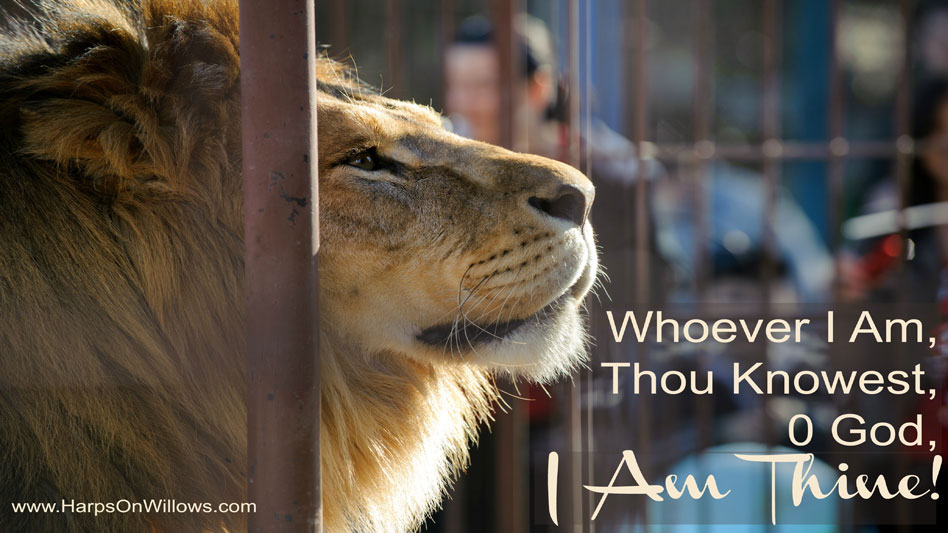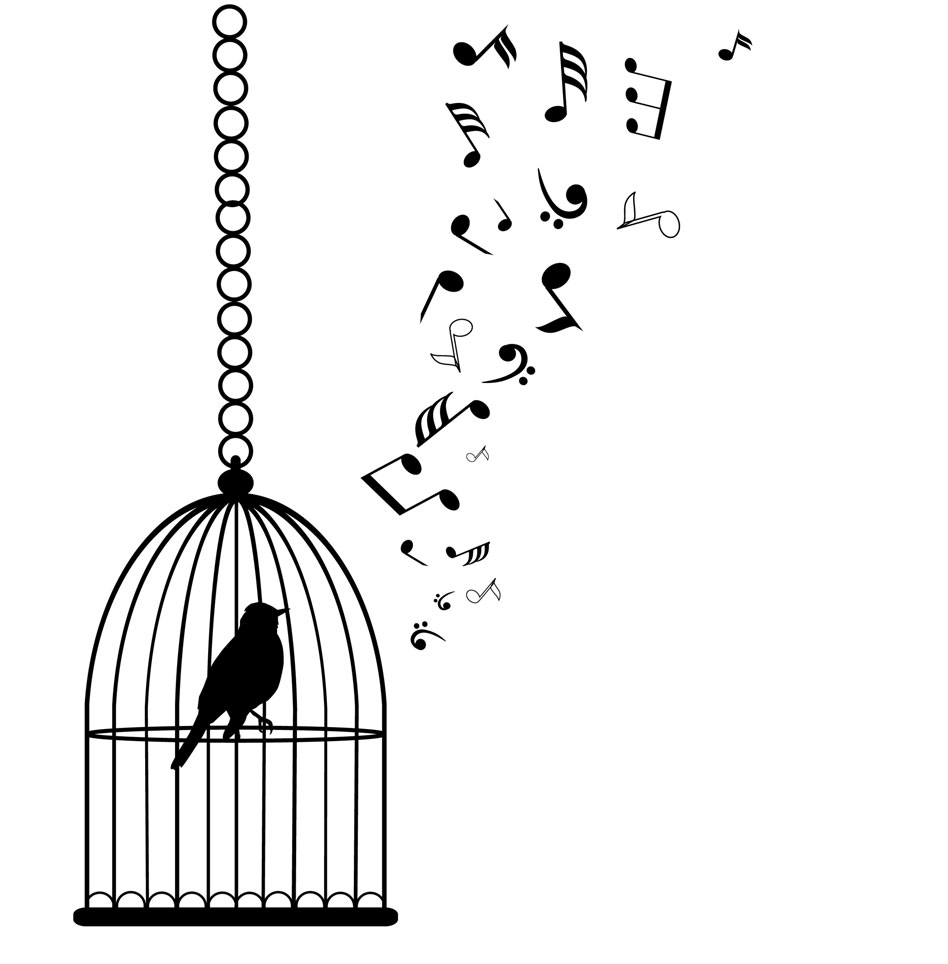Who Am I?
A Poem by Dietrich Bonhoeffer
Who am I? They often tell me
I stepped from my cell’s confinement
calmly, cheerfully, firmly,
like a Squire from his country-house.
Who am I? They often tell me
I used to speak to my warders
freely and friendly and clearly,
as though it were mine to command.
Who am I? They also tell me
I bore the days of misfortune
equally, smilingly, proudly,
like one accustomed to win.
Am I then really all that which other men tell of?
Or am I only what I myself know of myself?
Restless and longing and sick, like a bird in a cage,
struggling for breath, as though hands were
compressing my throat,
yearning for colors, for flowers, for the voices of birds,
thirsting for words of kindness, for neighborliness,
tossing in expectation of great events,
powerlessly trembling for friends at an infinite distance,
weary and empty at praying, at thinking, at making,
faint, and ready to say farewell to it all?
Who am I? This or the other?
Am I one person today and tomorrow another?
Am I both at once? A hypocrite before others,
and before myself a contemptibly woebegone weakling?
Or is something within me still like a beaten army,
fleeing in disorder from victory already achieved?
Who am I? They mock me, these lonely questions of mine.
Whoever I am, Thou knowest, 0 God, I am Thine!
Bonhoeffer In Prison
Dietrich Bonhoeffer’s ministerial work included being a pastor, theologian, and teacher. He studied in both Germany and the United States. Prior to his arrest by the Nazis he had recently traveled to both the United States and London (where he could have stayed but decided to return).
Arrested on April 5, 1943, Bonhoeffer remained in prison until his death by hanging on April 9, 1945. Up until this time, he had experienced an active and multi-dimensional ministry.
This poem displays the wide range of emotions he experienced in this new situation—an active servant of the Lord on the one hand, yet locked in a Nazi prison on the other.
His situation makes me think of John the Baptist when he sent disciples to ask Jesus, “Are you the one to come?” (Matt. 11:3; Luke 7:19). John’s ministry had been so vibrant, so infectious. And because he dared to point out Herod’s immorality, he was locked away in a Judean prison under Roman rule.
It’s hard to imagine the physical and emotional pain that being arrested must have had for both John the Baptist and Dietrich Bonhoeffer. Especially because both men were devoted to the Lord Jesus Christ and their lives revolved around serving Him and His people.
Bonhoeffer left behind many letters written while in prison. Reading the letters, it becomes clear that prison bars did not stop him from being who he was or doing what God called him to do—a pastor, theologian, and proclaimer of Jesus Christ.
Hopelessness Will Be Hopelessness
Though a hated job could never really compare to a Nazi prison in physical severity terms, or any terms for that matter, the assorted emotional states can are similar.
We are creatures of hope. When we lose hope—regardless of the situation—our minds, bodies, hearts, and souls seek equilibrium. Finding it and losing it become almost synonymous. As soon as hope is found, the reality of the situation sets in. As soon as it is lost, the reality of Jesus Christ sets in. Hopelessness will be hopelessness.
Bonhoeffer’s Poem
As far as the poem, two parts especially resonated with me:
- Restless and longing and sick, like a bird in a cage,
struggling for breath, as though hands were
compressing my throat… - weary and empty at praying, at thinking, at making,
faint, and ready to say farewell to it all?
In all honestly, it pains me severely to see a bird in a cage (!). Because that is exactly how I feel—restless, longing, sick, stuck, no way out, no space to move, no view, nothing changes, stuck, stuck, and most of all not free. What’s a person (or bird) to do in such restriction when there is so much life to be lived?
Also “weary and empty at praying” has tormented me off and on throughout the last 16 years (which seems a lifetime thrown away, right?). Once the only prayers I said were the ones before a meal. All other prayers filled me with hope, and it was too painful when they weren’t answered. Another time I only prayed the Lord’s Prayer, because otherwise I was at a total lost as to what to say to God.
It is cathartic to read the words of others going through similar emotional trials. And especially a person like Dietrich Bonhoeffer. If he had thoughts such as these, then surely God understands my same thoughts.
In my head, I know God understands (and forgives the lapses in trust), but sometimes my heart hurts too badly to remember.
Regardless of any heart’s ebb and flow, or feeling lost, or scared to hope, all that needs to be remembered is this:
Whoever I am, Thou Knowest, O God, I Am Thine!
What about you? Which part(s) of Bonhoeffer’s poem resonates with you and your situation?
Prayer (from Bonhoeffer’s first Christmas in prison):
O God,
And Jesus told them a parable to the effect that they ought always to pray and not lose heart. Luke 18:1
Early in the morning do I cry unto thee.
Help me to pray,
And to think only of thee.
I cannot pray alone.
In me there is darkness
But with thee there is light.
I am lonely, but thou leavest me not.
I am feeble in heart, but thou leavest me not.
I am restless, but with thee there is peace.
In me there is bitterness, but with thee there is patience;
Thy ways are past understanding, but
Thou knowest the way for me.
[In Jesus Name—Amen.]



